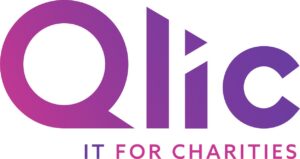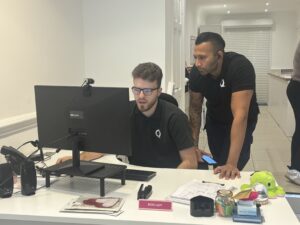The ability to work remotely has become essential, particularly for nonprofit organisations. These organisations often operate with volunteers and staff spread across various locations. Remote work enables charities to maintain operations, reach wider communities, and continue vital work. However, adapting to remote work presents its own set of challenges. Charities must ensure seamless communication, collaboration, and data security while managing a remote workforce.
This blog will explore how Microsoft 365 supports remote workers and empowers workforce. We will explore the key features and tools within Microsoft 365 that facilitate effective remote work, including communication platforms, collaboration tools, and security measures. Join us as we uncover the potential of Microsoft 365 in empowering charities to thrive when remote working.
The Importance of Remote Working for Charities
The COVID-19 pandemic has significantly accelerated the rise of remote work in the nonprofit sector. A recent report by Charity Digital revealed that 68% of charities are planning to adopt a hybrid model for their working arrangements. This leap towards flexibility is essential for charities that often operate with limited resources and rely on the dedication of a geographically dispersed workforce.
However, limited resources can make it difficult to provide the necessary technology and support for remote teams. The need for seamless collaboration is heightened when team members are not co-located, requiring digital tools to maintain communication, project management and security.
Overcoming these challenges is crucial for charities to operate efficiently and effectively. Embracing remote work can enhance operational efficiency and enable charities to make a significant impact.

Overview of Microsoft 365 for Charities
Microsoft 365 is a suite of cloud-based productivity tools designed to enhance collaboration and efficiency for organisations. Microsoft 365 applications include Word, Excel, and PowerPoint, which are essential for creating and managing documents. OneDrive offers secure cloud storage and Microsoft Teams is a powerful communication platform that supports chat, video conferencing, and project management. SharePoint is a key platform within Microsoft that facilitates document management and team collaboration through the cloud, allowing organisations to create and maintain a centralised repository for their information and resources.
These tools collectively empower charities to overcome the challenges of remote work, streamline their operations, and enhance their impact.
Benefits of Microsoft 365 for Supporting Remote Workers
When following remote working best practices for nonprofits, you will find that Microsoft 365 supports remote workers and offers a robust solution that enhances collaboration, scalability, and security. Below are some of the many benefits of Microsoft 365 for remote workers:
- Enhanced Collaboration
- Scalability
- User-friendly
- Cost-effective solutions
- Advanced Security and Compliance features
Let’s discover more about the benefits of Microsoft 365 for supporting remote workers.
Enhanced Collaboration
Microsoft 365 enables teams to stay connected and embrace seamless communication and teamwork across different locations and even time zones. It provides 24/7 access across all devices and collaboration on projects, sharing documents, and communication through tools like Microsoft Teams.
Scalability
The tools within Microsoft 365 can scale with your organisation, accommodating more users and data without compromising performance. This scalability ensures that as your charity expands, your technological infrastructure remains capable of supporting it.
User-Friendly
Microsoft 365 has an intuitive interface and integrates seamlessly with Office applications. This user-friendliness means that staff can quickly adapt to the tools, enhancing productivity and minimising the need for extensive training.
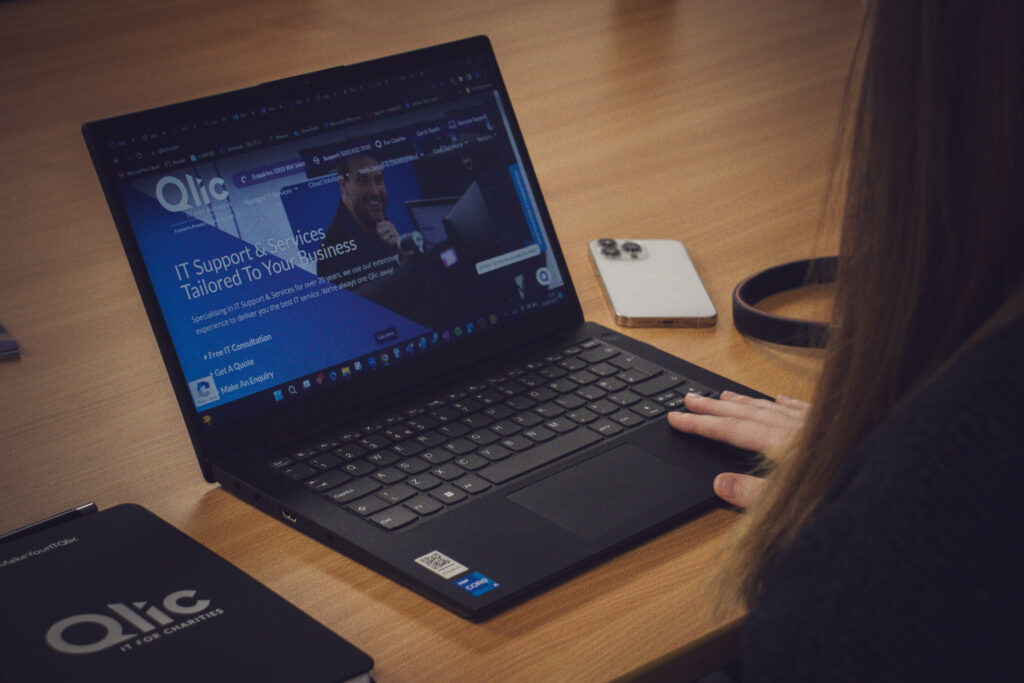
Cost-Effective Solutions
Microsoft offers nonprofit plans and discounts that make advanced technology affordable. Charities can apply for nonprofit status, and once certified can access a range of microsoft grants. Nonprofits can also access free Microsoft licences for eligible organisations. These cost-effective solutions ensure that even small nonprofits can leverage Microsoft 365’s tools.
Advanced Security and Compliance Features
Microsoft 365 ensures data protection with features such as data encryption, multi-factor authentication, and regular security updates. It complies with global, regional, and industry-specific regulations and standards, highlighting the best practices in data management.
Microsoft 365 also includes advanced threat protection, anti-phishing, and anti-malware features to safeguard against cyber-attacks. While these security features help reduce the chances of cyber attacks, staying vigilant and informed on the latest cyber security trends is crucial.
Key Microsoft 365 Tools for Remote Work
The extensive Microsoft 365 suite has evolved over the years to support all areas of remote and hybrid working for nonprofits. The tools available within Microsoft depend on the charity’s licence, but here we explore some of the top tools for supporting remote workers within nonprofit organisations.
- Microsoft Teams: Collaboration and Communication
- Outlook: Email communication and Calendar management
- OneDrive and SharePoint: Secure File Storage and Sharing
- Office Applications: Productivity Tools
- Power Automate and Power BI
Let’s delve into Microsoft 365 tools for remote work.
Microsoft Teams: Collaboration and Communication
Microsoft Teams supports remote worker by facilitating real-time communication and collaboration through direct messaging, group chats, video conferencing, and shared workspaces. Nonprofits can use Teams for virtual meetings, project management, and even volunteer coordination. Learn more about the benefits of Microsoft Teams for nonprofits and the tool’s latest capabilities in our charity guide to Microsoft Teams updates.
Outlook: Email Communication and Calendar Management
Outlook is a vital tool for communication via email, calendar management and task tracking. It ensures that all communications are streamlined, allowing charities to manage their time effectively and stay on top of their tasks.
OneDrive and SharePoint: Secure File Storage and Sharing
OneDrive and SharePoint offer benefits for cloud storage, such as easy access to files from anywhere and enhanced data security. SharePoint supports remote workers by creating intranet sites for centralised information sharing and facilitating team collaboration with security and permission controls such as SharePoint Groups. OneDrive is used for individual file storage and sharing. Find out more about the differences between SharePoint and OneDrive.

Office Applications: Productivity Tools
Word, Excel, and PowerPoint all enhance real-time collaboration on documents. Features such as co-authoring and version control enable nonprofit workers to remain collaborative when working remotely. These tools are integral for creating, editing, and sharing content seamlessly within teams.
Power Automate and Power BI: Streamlining Operations and Data Insights
Power Automate is used for tasks and workflows, freeing up valuable time for nonprofit staff automatically. Power BI helps charities visualise data and gain actionable insights for decision-making, enhancing their ability to track progress and measure impact.
Remote Working Success for Voluntary Action Arun & Chichester with Microsoft 365
A prime example of remote working success can be seen with Voluntary Action Arun & Chichester (VAAC), a nonprofit that provides support to voluntary and community groups in Arun and Chichester districts in West Sussex. By implementing Microsoft 365, VAAC has dramatically improved its operational efficiency, collaboration, and overall impact.
The integration of Microsoft Teams allowed their remote staff to communicate seamlessly, coordinate projects effectively, and manage volunteers across different locations. SharePoint and OneDrive provided secure and easily accessible file storage regardless of physical location.
A representative from VAAC shared their positive experience: “Throughout the whole experience everyone has been very efficient, very helpful and very supportive. I am so grateful for the time that Qlic have taken to explain everything they were doing. We really appreciated the time and care to come up with the best solution, thinking about what suits our organisation; a joint effort to see what works best for us, which you don’t often get! I would certainly recommend Qlic to others, the process has been so good. We now feel supported, which goes a long way to make our working life easier.”
This success story underscores Microsoft 365’s transformative potential for nonprofits, particularly in supporting remote work and driving greater mission impact.

Closing Thoughts
In this blog, we’ve discovered how Microsoft 365 supports remote workers. We discussed how the extensive suite of tools empowers nonprofits to overcome challenges associated with remote work. These tools enhance collaboration, scalability, user-friendliness, cost-effectiveness, and security.
Through a case study from VAAC, we highlighted how Microsoft 365 can streamline operations, improve communication, and increase the overall impact of nonprofit organisations.
As charities continuously adopt remote working models, tools like Microsoft 365 will be crucial in supporting their efforts. By embracing these technologies, nonprofits can achieve greater efficiency, reach wider audiences, and drive more substantial change. The integration of powerful solutions signifies a promising path towards increased impact and success in the nonprofit sector.
GET IN TOUCH
Would your charity like to learn more about leveraging Microsoft Solutions for increased efficiency and success? Click the button below to book your FREE Consultation with our IT experts at Qlic IT.
